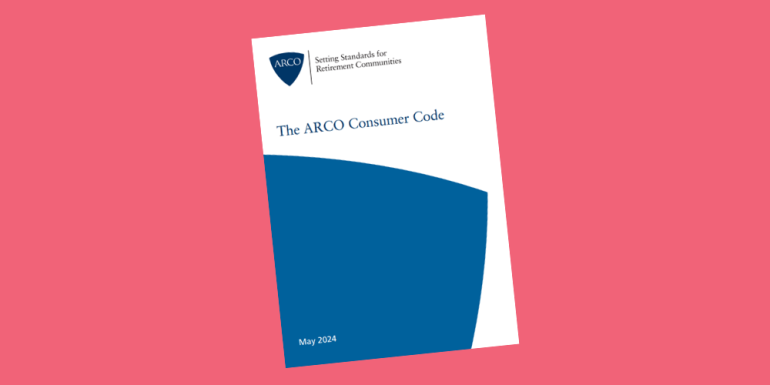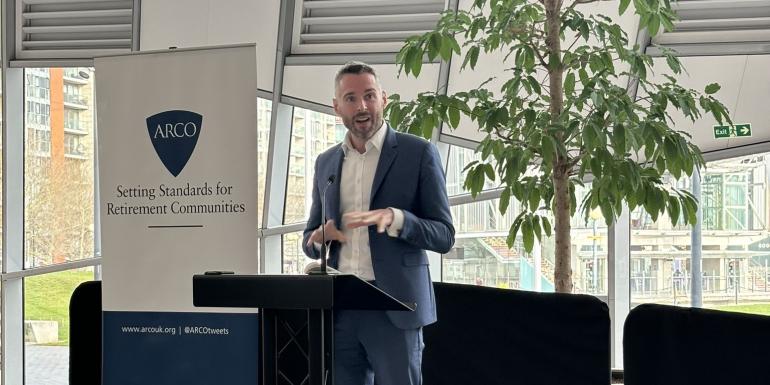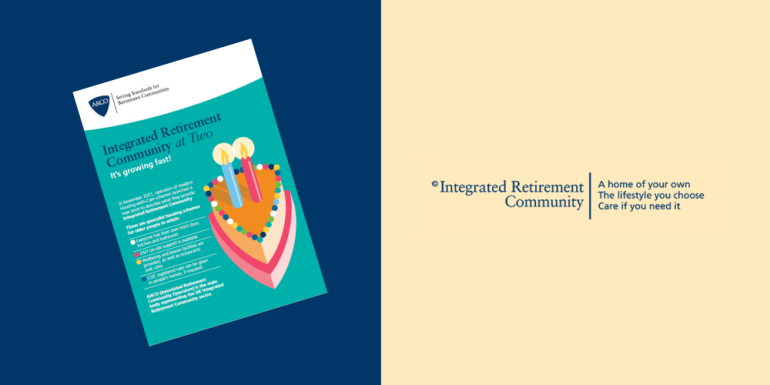Responding to the Government’s decision not to introduce a “sheltered rent” or a cap on service charges in extra care schemes, Michael Voges Executive Director of the Associated Retirement Community Operators said:
“This is good news for the tens of thousands of older people who want to move to Retirement Communities and benefit from improved health, care, wellbeing and independence. It is also a sensible decision for all levels of Government and will help to deliver better value.
“The UK is a world leader in the provision of Retirement Communities for those with moderate means, often referred to as extra care. With a rapidly ageing population, there is huge demand for more of these schemes as they deliver great quality of life for residents and generate substantial savings for our health and social care systems.
“We are delighted that as a result of this decision the future of this part of our sector is looking more secure. Our aim is to see 250,000 people living in Retirement Communities, including extra care, by 2030.”
For Further Information Please Contact
Gareth Lyon, Head of Policy and Communications, at garethlyon@arcouk.org or on 075350 88498
Notes to editors
- About ARCO: ARCO (the Associated Retirement Community Operators) is the trade association for operators of housing-with-care developments for older people. ARCO was formed in September 2012 by its founder members. There are currently 29 ARCO members including both private and not-for-profit providers of housing-with-care. Together they operate around 350 Retirement Communities, serving over 30,000 older people in the UK. There are also over 60 organisations affiliated to ARCO including ARCO Affiliate Network Subscribers, Premier Partners and members of the ARCO AccelerFator Programme. ARCO sets high standards, and all ARCO members must adhere to the externally assessed ARCO Consumer Code. ARCO does not represent the traditional retirement housing model where there are limited services and no care is available.
- About Retirement Communities: Retirement Communities typically consist of individual one or two bedroom flats or small houses, located in a development of similar properties. Residents have access to a range of services and facilities, which will include optional on-site care, 24-hour staffing, and dining and leisure facilities, and may also include bars, gyms and craft rooms. Retirement Communities are also sometimes referred to as housing-with-care schemes; retirement villages; extra care housing; assisted living; or close care apartments. They sit in between traditional retirement houses (which have less extensive staffing and leisure facilities), and care homes, and can be in urban or suburban locations.
- About Vision 2030: Vision 2030 is ARCO’s vision for 250,000 people to be living in Retirement Communities by 2030. The vision sets out ten areas of work for the sector in order to achieve this. These are:
- Development of a clear customer proposition
- Effective self-regulation
- Enhanced Health and wellbeing
- Intelligent use of technology
- Flexible models of tenure
- Sustainable funding streams
- Sector-specific legislation
- Comprehensive and robust data
- Clarity in the planning system
- A highly trained workforce
For more information on Vision 2030, please contact Gareth Lyon, Head of Policy and Communications, at garethlyon@arcouk.org.
- Benefits of Retirement Communities:
- Meeting the needs of an ageing population: Older people need and want choice in their housing for later life. However, at present housing options for older people are limited. Retirement Communities are an important element of housing choice for older people. Developing the capacity of the Retirement Communities sector is vital to ensuring that the UK’s housing market is fit to meet the needs of an ageing population.
- Promoting independence, security and wellbeing: Older people living in Retirement Communities are likely to experience lower levels of loneliness and social isolation. A 2014 study by the International Longevity Centre found that 82% of respondents in Retirement Communities said they hardly or never felt isolated, and only 1% often felt isolated.
- Reducing costs and encouraging more efficient use of resources:Residents in Retirement Communities are able to receive specialist care in their homes if needed, enabling them to return home from hospital earlier. They are also less likely to enter hospital. For example, one way in which Retirement Communities improve health is by preventing falls. Retirement Communities properties are designed and built with adaptations to support independence and research shows that those living in these specialist homes are between 1.5 and 2.8 times less likely to have a fall than those living in homes without adaptations. This helps to reduce pressure on NHS services. A recent study found that NHS costs were reduced by 38% for those moving into Retirement Communities housing and NHS costs for ‘frail’ residents had reduced by 51.5% after 12 months.
- Responding to the housing shortage:Older people moving to a Retirement Communities will typically ‘downsize’, freeing up much needed and under-occupied family sized homes. If all those interested in moving into a retirement property were able to do so, research suggests that approximately 3.29 million properties would be released, including nearly 2 million three-bedroom homes.





